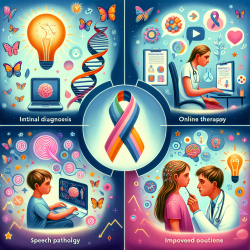Introduction
The COVID-19 pandemic has highlighted significant challenges in the management of patient data, particularly concerning security and transparency. As healthcare professionals, it's crucial to explore innovative solutions that can address these issues effectively. One such promising solution is the use of Ethereum smart contracts, as discussed in the research article "Using Ethereum Smart Contracts to Store and Share COVID-19 Patient Data."
Understanding Ethereum Smart Contracts
Ethereum is an open-source blockchain platform that allows for the creation of smart contracts. These are self-executing contracts with the terms of the agreement directly written into code. They provide a secure and efficient way to manage transactions and data storage, ensuring that the data remains immutable and accessible only to authorized parties.
Key Findings from the Research
The study developed a proof-of-concept smart contract to store COVID-19 patient data securely. The results demonstrated that using a private Ethereum network with a Proof of Authority (PoA) consensus mechanism allowed for efficient data insertion and retrieval. For instance, inserting 50 records required only 191 milliseconds and 890 MB of memory, while retrieving data from a 350-record database required 912 MB.
Implications for Healthcare Professionals
Implementing Ethereum smart contracts in healthcare settings can offer several advantages:
- Enhanced Security: The decentralized nature of blockchain technology reduces the risk of data breaches and ensures that patient data is only accessible to authorized individuals.
- Data Integrity: Smart contracts ensure that data remains unchanged once it is stored, providing a reliable source of information for healthcare providers.
- Efficiency: The rapid data insertion and retrieval capabilities of Ethereum smart contracts can streamline data management processes, saving time and resources.
Encouraging Further Research
While the study provides a compelling case for using Ethereum smart contracts in healthcare, further research is needed to explore its full potential. Healthcare professionals are encouraged to investigate how this technology can be applied to other areas of patient data management and to consider the legal and technical challenges associated with its implementation.
Conclusion
The integration of Ethereum smart contracts into healthcare systems represents a significant step forward in the secure and efficient management of patient data. By embracing this technology, healthcare professionals can improve data security, enhance patient privacy, and facilitate better health outcomes.
To read the original research paper, please follow this link: Using Ethereum Smart Contracts to Store and Share COVID-19 Patient Data.










